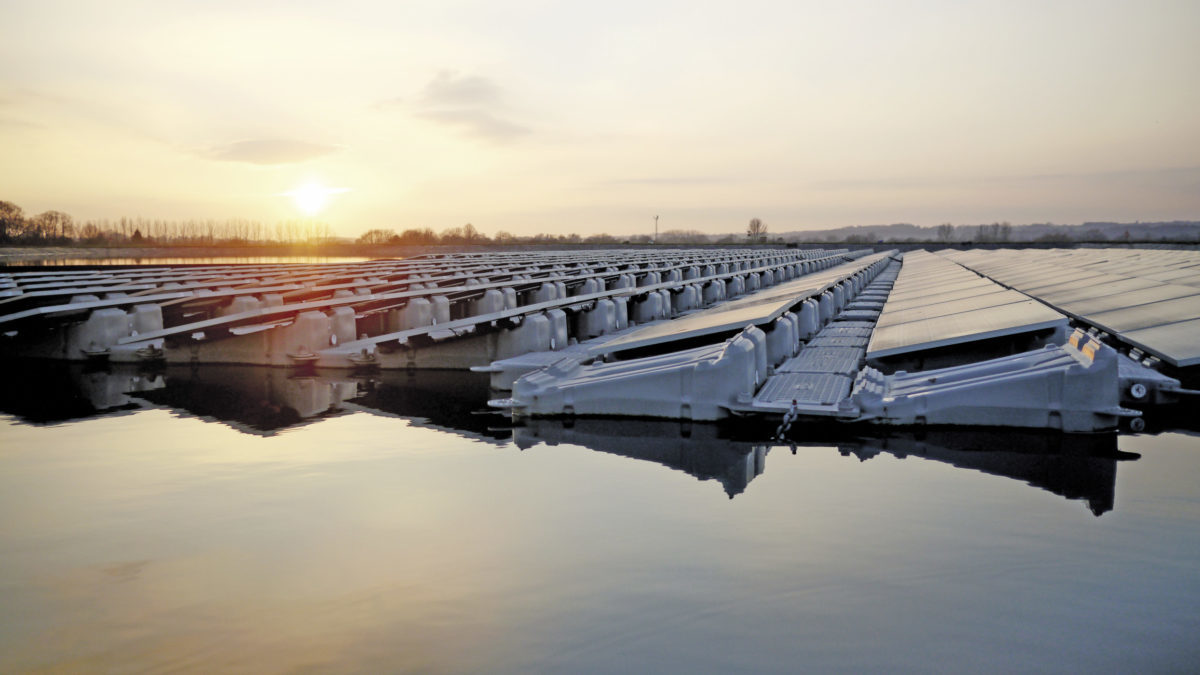A report has concluded combining floating solar with hydroelectric power plants increases power generation from the latter by reducing evaporation.
The Investigation on floating photovoltaic covering system in rural Indian reservoir to minimize evaporation loss paper, by R Nagavinothini of Italy’s University of Naples and independent researcher R Nagananthini, set out to estimate the power generation gains and water saving potential of floating solar on reservoirs. The study then went on to consider the further generation gains available from the associated hydropower facilities.
The authors of the paper chose the 6 MW Vaiga dam reservoir in Tamil Nadu as their test case and modeled various iterations of a 1.14 MW generation-capacity floating PV array across 30% – 11.53km2 – of the body of water.
System
The modeling indicated such a pontoon-based system could reduce evaporation from the reservoir by up to 42,731.56m3 per year. That would add up to 6.06 MWh more hydropower output per year, according to the paper, which was published in the International Journal of Sustainable Energy.
The floating PV system modeled would be 35% more costly than a conventional, land-based solar plant of the same scale, according to the study, but that figure would be compensated by the nearby grid infrastructure offered by the hydropower facility.
With the researchers modeling floating arrays with various tilt angles, orientation and tracking mechanisms, it was found 1,787 pontoons could host 3,574 polycrystalline silicon PV panels at a $0.82/Wp premium over the expense of a land-based solar farm.
“The additional cost of $0.82/Wp generated by the floating bed installation of the FPV [floating PV] system can be compensated [for by] the cost of buying and leveling of large hectares of land in … ground-mounted PV. Besides, FPV, coupled with HEPP [hydroelectric power plants], also eliminates the need for grid connection,” said the researchers.
The results indicated the floating PV system would also eliminate 44,734.62 tons of CO2 emissions.
This content is protected by copyright and may not be reused. If you want to cooperate with us and would like to reuse some of our content, please contact: editors@pv-magazine.com.









Surprisingly, this is the first article that actually gave a specific cost delta for floating solar over land-based solar. If Floating Solar is really $0.82/Wp more than land-based as the article says, then real change and acceleration are coming! Robotic built tracking floating solar will supposedly be same net cost as land-based after accounting for increased energy output via Tracking!